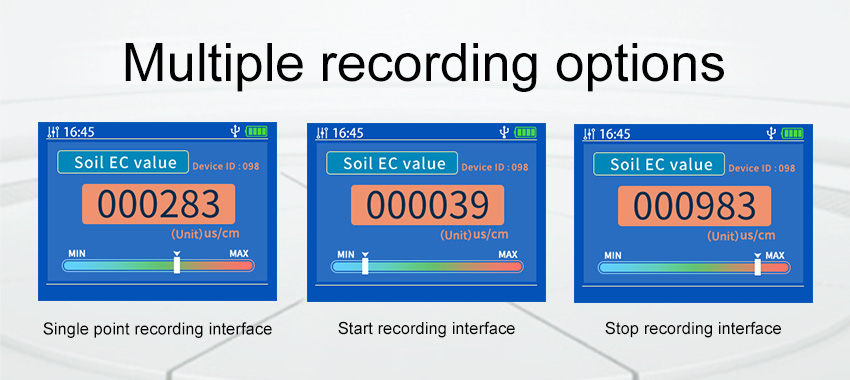Soil health is the foundation of agriculture and plays a crucial role in food production, environmental sustainability, and ecosystem resilience. Understanding the intricacies of soil health is essential for optimizing agricultural practices, managing land resources, and mitigating the impacts of climate change. In recent years, soil sensors have emerged as invaluable tools for unearthing the secrets of soil health. These sensors provide valuable insights into soil properties, nutrient levels, moisture content, and microbial activity, empowering farmers, researchers, and land managers to make informed decisions and implement sustainable soil management practices. In this article, we will explore how soil sensors are revolutionizing our understanding of soil health.

Accurate and Real-time Monitoring:
Soil sensors offer accurate and real-time monitoring of various soil parameters. They can measure key indicators such as soil moisture, temperature, pH levels, electrical conductivity (EC), nutrient levels (e.g., nitrogen, phosphorus, potassium), and soil organic matter content. This real-time monitoring capability allows for precise tracking of soil conditions, enabling timely interventions and optimizing irrigation, fertilization, and other management practices. By providing accurate and up-to-date information, soil sensors help farmers maximize crop yields, minimize resource wastage, and reduce environmental impacts.
Improved Water Management:
Water is a vital resource in agriculture, and efficient water management is crucial for sustainable farming. Soil sensors play a crucial role in assessing soil moisture levels, enabling farmers to optimize irrigation strategies. By providing real-time data on soil moisture content at different soil depths, these sensors help prevent over-irrigation or under-irrigation, ensuring that crops receive adequate water while avoiding waterlogging or drought stress. This targeted irrigation approach saves water, reduces energy consumption, and enhances crop productivity, contributing to water conservation efforts and protecting freshwater resources.
Nutrient Optimization:
Proper nutrient management is essential for healthy plant growth and sustainable agriculture. Soil sensors provide valuable insights into nutrient levels in the soil, enabling farmers to optimize fertilization practices. By measuring nutrient concentrations and providing real-time data, these sensors help farmers apply fertilizers precisely, avoiding over-fertilization that leads to nutrient runoff and pollution of water bodies. Additionally, soil sensors can detect nutrient imbalances or deficiencies, allowing farmers to take corrective measures promptly. This targeted approach to nutrient management promotes efficient resource utilization, reduces environmental impacts, and ensures optimal crop nutrition.

Enhanced Crop Monitoring and Yield Prediction:
Soil sensors contribute to enhanced crop monitoring and yield prediction. By continuously monitoring soil conditions, these sensors provide valuable information on the health and performance of crops. They can detect early signs of stress, nutrient deficiencies, or disease outbreaks, enabling farmers to take immediate action. Furthermore, by integrating soil sensor data with weather data and crop models, farmers can make accurate yield predictions and plan harvesting and marketing activities accordingly. This proactive approach to crop monitoring helps optimize productivity, mitigate risks, and improve farm profitability.
Identification of Soil Variability and Management Zones:
Soil sensors facilitate the identification of soil variability within a field, helping farmers implement site-specific management practices. By collecting data across different locations within a field, soil sensors reveal variations in soil properties, nutrient levels, and moisture content. This information enables farmers to delineate management zones and tailor their practices accordingly. For example, areas with high organic matter content can be managed differently from areas with low fertility. By adopting a site-specific approach, farmers can optimize inputs, reduce costs, and minimize environmental impacts.
Environmental Monitoring and Conservation:
Soil sensors play a vital role in environmental monitoring and conservation efforts. By measuring parameters such as soil organic matter content, microbial activity, and nutrient levels, these sensors provide insights into soil health and ecosystem functioning. This information helps land managers assess the impacts of land management practices, identify areas of concern, and implement conservation measures. Soil sensors also contribute to the monitoring of soil erosion, land degradation, and the effectiveness of soil conservation practices. By promoting sustainable soil management, these sensors aid in preserving soil fertility, biodiversity, and ecosystem services.
Data Integration and Decision Support:
Soil sensors generate a
